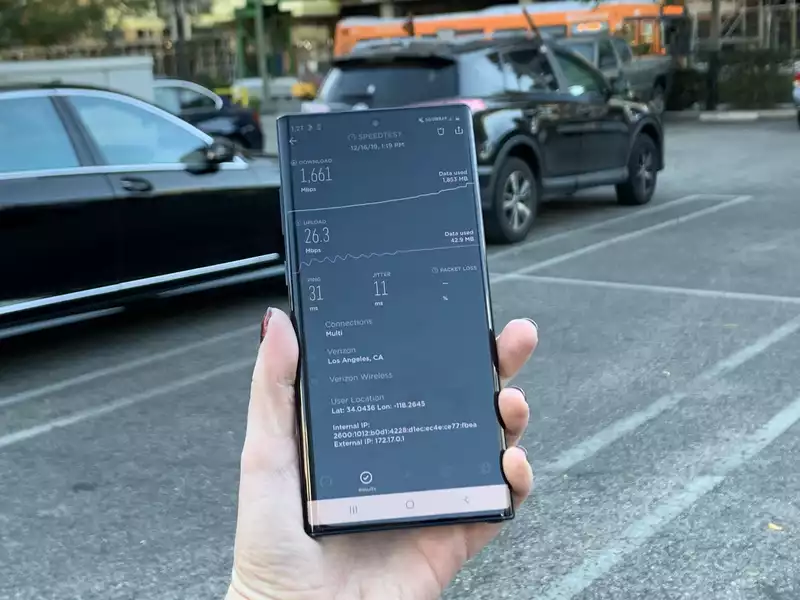These days, when it comes to wireless network performance, much attention is focused on 5G speeds. However, Verizon has shown that there is room for improvement in 4G speeds as well.
After acquiring CBRS spectrum (short for Citizens Broadband Radio Service), Verizon has been deploying it in select areas to enhance its 4G network, and PCMag recently conducted a test of this enhanced 4G in parts of New York City and found quite eye-popping numbers.
In PCMag's testing, a Galaxy Note 20 Ultra recorded a maximum speed of 815 Mbps using CBRS 4G at one test site (incidentally, testing firm RootMetrics has reported media download speeds of 72 Mbps for Verizon's New York City area for the second half of last year). speed of 72 Mbps). At the same location, Verizon's DSS-based 5G network recorded a peak download speed of 358 Mbps.
Verizon uses Dynamic Spectrum Sharing (DSS) for its nationwide 5G network. Verizon is using millimeter wave for high-speed ultra-wideband 5G coverage in over 60 cities and continues to provide the fastest coverage of over 3.4 Gbps in the same areas where CBRS 4G was delivering speeds over 800 Mbps.
Still, the CBRS numbers are impressive, covering much more area than Ultra Wideband. Usually, you have to be in the line of sight of an ultrawideband tower to pick up a signal, but PCMag reports that CBRZ's signal can reach up to a half-mile.
However, CBRS has a major drawback. According to a Light Reading report last September, Verizon's CBRS spectrum covers 37% of the population, most of which is concentrated in large cities and urban areas. Therefore, unless you live in a major metropolitan area such as New York, Los Angeles, or Chicago, 4G speeds are unlikely to improve.
According to PCMag, there are a few other caveats to improved performance. If you are a Verizon customer, you need a phone that supports LTE band 48. You may also need to turn off 5G on your phone in order to run your device on faster 4G.
The benefits of CBRS bode well for the C-band 5G frequency bands that are set to emerge next year as wireless carriers continue to build 5G coverage. c-band spectrum promises greater speeds over a wider area, and CBRS is located just below C-band PCMag concludes that this is an encouraging sign for future network performance improvements.










Comments